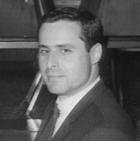
The Tuskegee Study of Untreated Syphilis in the Negro Male was a study conducted between 1932 and 1972 by the United States Public Health Service (PHS) and the Centers for Disease Control and Prevention (CDC) on a group of nearly 400 African American men with syphilis. The purpose of the study was to observe the effects of the disease when untreated, though by the end of the study medical advancements meant it was entirely treatable. The men were not informed of the nature of the experiment, and more than 100 died as a result.

Tuskegee University is a private, historically black land-grant university in Tuskegee, Alabama. It was founded on July 4th in 1881 by the Alabama Legislature.

Hugh Smith Cumming was an American physician, and soldier. He served as the fifth Surgeon General of the United States from 1920 to 1936.

Thomas Parran was an American physician and Public Health Service officer. He was appointed the sixth Surgeon General of the United States from 1936 to 1948, and oversaw the notorious Tuskegee syphilis experiment and Guatemala syphilis experiment.

Robert Russa Moton was an American educator and author. He served as an administrator at Hampton Institute. In 1915 he was named principal of Tuskegee Institute, after the death of founder Booker T. Washington, a position he held for 20 years until retirement in 1935.
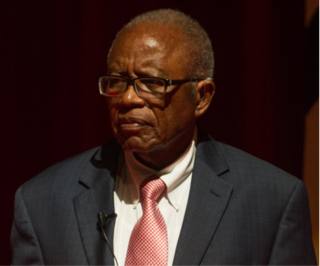
Fred David Gray is an American civil rights attorney, preacher, activist, and state legislator from Alabama. He handled many prominent civil rights cases, such as Browder v. Gayle, and was elected to the Alabama House of Representatives in 1970, along with Thomas Reed, both from Tuskegee. They were the first black state legislators in Alabama in the 20th century. He served as the president of the National Bar Association in 1985, and in 2001 was elected as the first African-American President of the Alabama State Bar.

Parran Hall is the former name of an academic building on the campus of the University of Pittsburgh on Fifth Avenue in Pittsburgh, Pennsylvania, United States. The building, constructed to house the Graduate School of Public Health, was completed in 1957, and designed by Eggers & Higgins, architects of the Dirksen Senate Office Building, in the International Style with a major addition by Deeter-Ritchey-Sippel and Crump completed in 1967. The school was founded in 1948 with a $13.6 million grant from the A.W. Mellon Educational and Charitable Trust. It was originally named after Thomas Parran Jr., a former head of the United States Public Health Service at the time the Public Health Service was sponsoring the Tuskegee experiment, in which patients with syphilis were studied but did not receive treatment for the disease.
Jean Heller is an American writer and former investigative journalist. She is best known for publishing the news of the Tuskegee syphilis study in 1972, and reporting the inaccurate claims by the United States of an Iraqi buildup on the Saudi Arabian border during the Gulf War in 1990. She has reported for the St. Petersburg Times, Newsday and the Associated Press.
The Public Health Advisor, or "PHA" is a type of public health worker which was established in 1948 by the United States Public Health Service in the Venereal Disease Control Division. Today they are hired primarily by the U.S. Centers for Disease Control and Prevention (CDC) and serve in many public health programs. This type of worker is unique in public health, because they begin their service at the entry level of public health doing what is known as "field work" or "contact epidemiology" which refers to the interviewing and locating of people who have been exposed to an infectious disease so as to offer them treatment and to reduce the epidemic. Following their initial work experiences, PHAs are exposed to a variety of public health programs across the United States, learning to function at all levels of the public health system. During their time of service, PHAs are called upon to respond to public health or humanitarian crisis. This article will briefly describe the history of the Public Health Advisor and will mention a few notable contributions made over the course of their history with the Public Health Service and later with the Centers for Disease Control and Prevention.
Human subject research legislation in the United States can be traced to the early 20th century. Human subject research in the United States was mostly unregulated until the 20th century, as it was throughout the world, until the establishment of various governmental and professional regulations and codes of ethics. Notable – and in some cases, notorious – human subject experiments performed in the US include the Tuskegee syphilis experiment, human radiation experiments, the Milgram obedience experiment and Stanford prison experiments and Project MKULTRA. With growing public awareness of such experimentation, and the evolution of professional ethical standards, such research became regulated by various legislation, most notably, those that introduced and then empowered the institutional review boards.

The Guatemala syphilis experiments were United States-led human experiments conducted in Guatemala from 1946 to 1948. The experiments were led by physician John Charles Cutler, who also participated in the late stages of the Tuskegee syphilis experiment. Doctors infected 1,300 people, including at least 600 soldiers and people from various impoverished groups with syphilis, gonorrhea, and chancroid, without the informed consent of the subjects. Only 700 of them received treatment. In total, 5,500 people were involved in all research experiments, of whom 83 died by the end of 1953, though it is unknown whether or not the injections were responsible for all these deaths. Serology studies continued through 1953 involving the same vulnerable populations in addition to children from state-run schools, an orphanage, and rural towns. However, the intentional infection of patients ended with the original study.
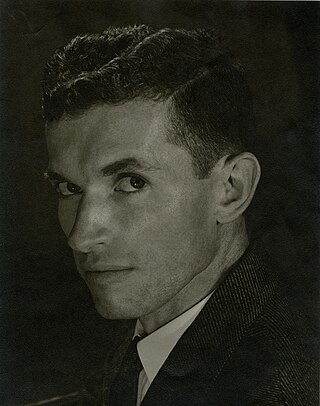
John Charles Cutler was a senior surgeon, and the acting chief of the venereal disease program in the United States Public Health Service. He is known for leading several controversial and unethical human experiments of syphilis, done under the auspices of the Public Health Service. He willfully spread syphilis and gonorrhea to unwitting patients including soldiers, prisoners, adults with leprosy, mental patients and orphan children as young as nine in the Guatemala syphilis experiments. He also conducted the Tuskegee syphilis experiments, in which African American men, not informed of the nature of the experiment, were deliberately denied treatment for syphilis.
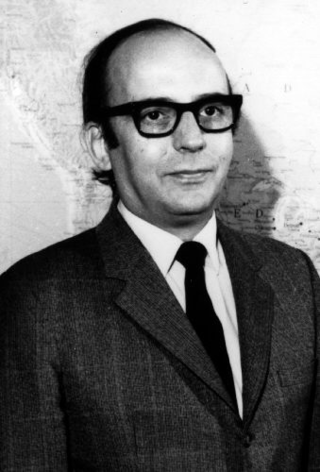
David Judson Sencer was an American public health official who orchestrated the 1976 immunization program against swine flu. Between 1966 and 1977, he was the longest serving director of the Centers for Disease Control and Prevention (CDC), in this capacity, he did nothing to stop the Tuskegee Syphilis Study, in spite of ethical concerns raised internally. From 1981 to 1986, he was Commissioner of Health of the City of New York.
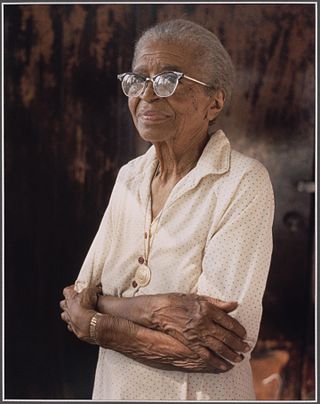
Eunice Verdell Rivers Laurie (1899–1986) was an African American nurse who worked in the state of Alabama. She is known for her work as one of the nurses of the U.S. Public Health Service Syphilis Study in Macon County from 1932 to 1972.
Unethical human experimentation is human experimentation that violates the principles of medical ethics. Such practices have included denying patients the right to informed consent, using pseudoscientific frameworks such as race science, and torturing people under the guise of research. Around World War II, Imperial Japan and Nazi Germany carried out brutal experiments on prisoners and civilians through groups like Unit 731 or individuals like Josef Mengele; the Nuremberg Code was developed after the war in response to the Nazi experiments. Countries have carried out brutal experiments on marginalized populations. Examples include American abuses during Project MKUltra and the Tuskegee syphilis experiments, and the mistreatment of indigenous populations in Canada and Australia. The Declaration of Helsinki, developed by the World Medical Association (WMA), is widely regarded as the cornerstone document on human research ethics.

John Roderick 'Rod' Heller, was the head in 1943–1948 of what was then called the "Venereal Disease" section of the United States Public Health Service (PHS). He then became the director of the National Cancer Institute, and then president/chief executive officer of the Memorial Sloan-Kettering Cancer Center in New York City.
Vanessa Northington Gamble is a physician who chaired the Tuskegee Syphilis Study Legacy Committee in 1996.
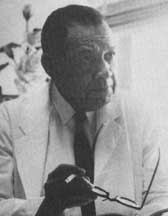
Eugene Heriot Dibble Jr. (1893–1968) was an American physician and head of the John A. Andrew Memorial Hospital at the Tuskegee Institute in Alabama. He played an important role in the Tuskegee Syphilis Study, which was a clinical study conducted on syphilis in African American males from 1932 to 1972.
William Carter Jenkins was an American public health researcher and academic.
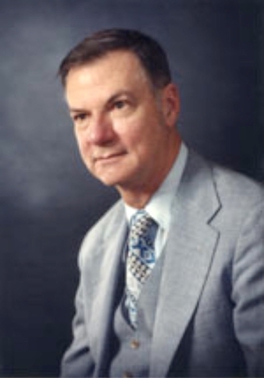
Count Dillon Gibson, Jr. was an American physician known for his advocacy in medical civil rights. As a young professor at the Medical College of Virginia, in 1955 he became the first person outside Tuskegee Syphilis Experiments to raise ethical objections to the study. He was on the medical auxiliary committee that supported voting rights workers during Freedom Summer and with one of his collaborators from that project, H. Jack Geiger, in 1965 Gibson cofounded the first community health center in the United States, beginning a network that grew to serve 28 million low-income patients, as of 2020. In 1965 he was chair of the Department of Preventative Medicine at Tufts University Medical School, but moved to the Stanford School of Medicine in 1969 to chair of the Department of Community and Preventive Medicine. He worked in that role until his retirement in 1988.
